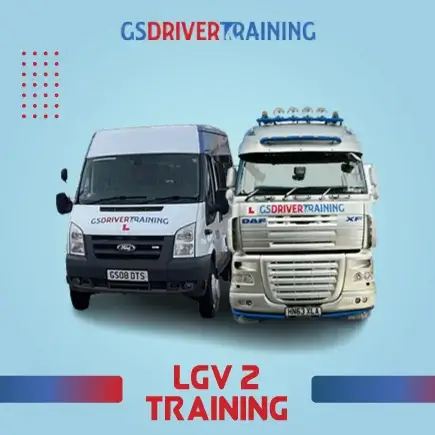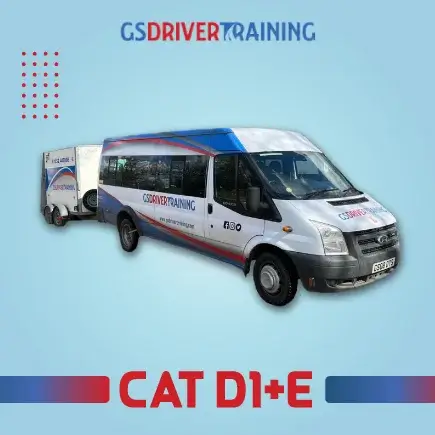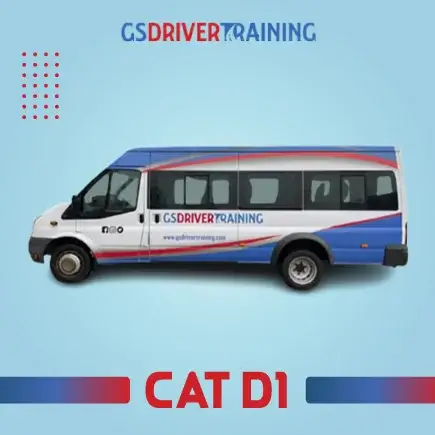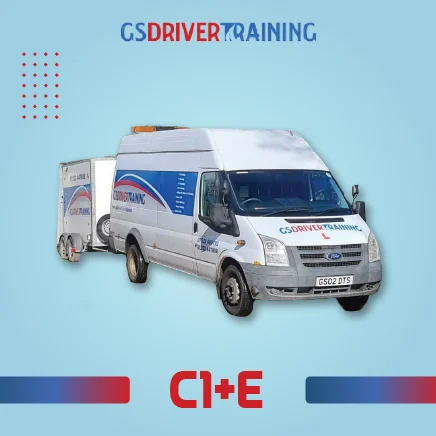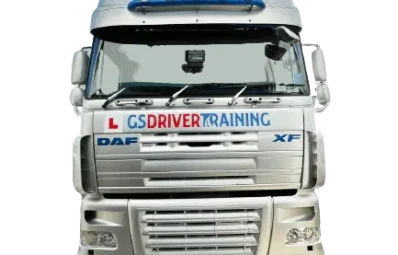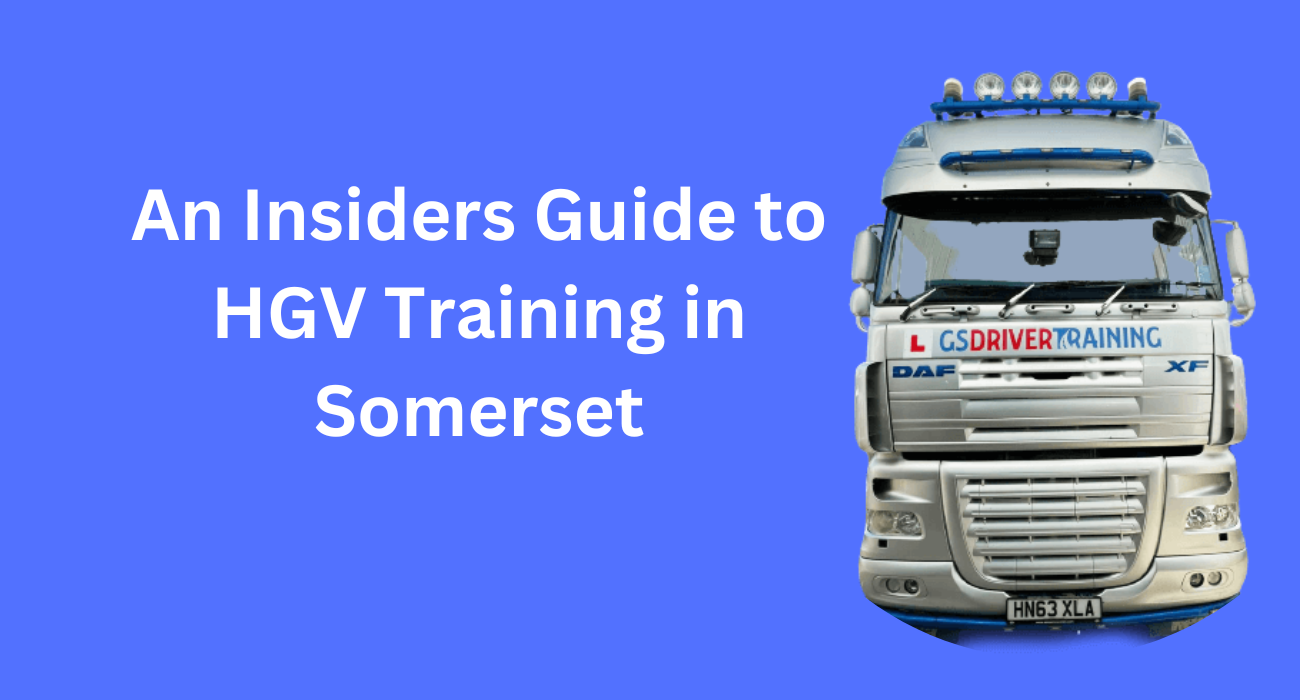
If you aspire to navigate the roads behind the wheel of Heavy Goods Vehicles (HGVs) in Somerset, you're embarking on a rewarding journey that requires careful planning and the right resources. Here's your insider's guide to mastering HGV training in Somerset:
1. Understand Licence Categories
Category C1
For driving vehicles between 3.5 and 7.5 tonnes.
Category C
For vehicles over 7.5 tonnes.
Category C+E
For vehicles over 7.5 tonnes with a trailer.
2. Research Reputable Training Providers
Look for established training providers in Somerset with positive reviews and a track record of successful student outcomes.
3. Consider Your Schedule
Plan your training around your schedule. Some providers offer flexible training hours to accommodate your other commitments.
4. Theory and Practical Training
Engage in comprehensive theoretical training covering road safety, regulations, and vehicle maintenance.
Practical training should include hands-on experience, ensuring you're well-prepared for real-world driving.
5. Mock Tests and Practice Sessions
Take advantage of mock theory tests and practice driving sessions your training school provides to boost confidence.
6. Stay Informed about Regulations
Keep abreast of the latest HGV regulations, ensuring you're well-informed about changes that might impact your training or profession.
7. Networking and Mentorship
Connect with experienced HGV drivers for insights and advice. Mentorship can provide valuable guidance throughout your training.
8. Explore Additional Certifications
Consider additional certifications, such as Driver CPC (Certificate of Professional Competence), to enhance your professional qualifications.
9. Utilize Online Resources
Leverage online platforms, forums, and educational resources to supplement your training. Stay informed about industry trends and best practices.
10. Plan for Continued Learning
HGV driver training is not just a one-time effort. Plan for ongoing professional development to stay current with industry standards and regulations.
By following this insider's guide, you'll be well-equipped to navigate the process of HGV training in Somerset, ensuring a successful and fulfilling career on the road. Safe travels!

CPC Training in Somerset
Completing your Driver Certificate of Professional Competence (CPC) is crucial to becoming a fully qualified HGV driver in Somerset. The CPC enhances road safety and ensures professional drivers have the necessary skills and knowledge. Here's what you need to know about driver CPC training in Somerset:
1. Legal Requirement
The CPC is a legal requirement for professional HGV drivers. It consists of two parts: the initial qualification and periodic training.
2. Initial Qualification
You must pass a theory and practical test to obtain your initial CPC qualification. The theory test covers road safety, vehicle operations, and legal requirements.
3. Periodic Training
Once you've obtained your initial CPC, you must complete periodic training every five years to maintain your qualification. This ongoing training ensures you stay updated on industry regulations and best practices.
4. Training Providers in Somerset
Research reputable training providers in Somerset that offer CPC courses. Look for those with experienced instructors and positive reviews from previous students.
5. Course Content
CPC courses cover various topics, including safe and fuel-efficient driving, driver health and well-being, and the legal aspects of road transport.
6. Flexible Learning Options
Some training providers offer flexible learning options, including online courses and weekend classes, to accommodate the schedules of working professionals.
7. Stay Informed
Keep yourself informed about any changes to CPC regulations. Staying updated ensures you comply with the latest standards and maintain your professional standing.
8. Networking Opportunities
CPC training also provides networking opportunities with other professionals in the industry. Take advantage of these connections to enhance your knowledge and share experiences.
9. Plan Ahead
Plan your CPC training well to meet legal requirements and maintain your ability to work as an HGV driver in Somerset.
10. Continuous Improvement
View CPC training as an opportunity for continuous improvement. Stay engaged with the learning process to enhance your skills and contribute to a safer, more efficient road transport industry.
By approaching CPC training with diligence and a commitment to ongoing learning, you'll meet regulatory requirements and enhance your capabilities as a professional HGV driver in Somerset.
C1 Training in Somerset
Embarking on C1 driver training in Somerset is an excellent choice if you're aiming to drive medium-sized goods vehicles. Here's a guide to help you navigate through the process:
1. Determine Eligibility
Ensure that you meet the eligibility criteria for C1 training. You must be 18 and hold a valid Category B (car) driving licence.
2. Choose a Reputable Training Provider
Research and choose a reputable training provider in Somerset. Look for accredited schools with experienced instructors and positive reviews from past trainees.
3. Understand the Training Process
Familiarize yourself with the C1 training process. It usually involves theoretical and practical components, including vehicle familiarisation, driving techniques, and safety protocols.
4. Theory Test Preparation
Prepare for the theory test, which assesses your understanding of road safety, vehicle operations, and relevant regulations. Utilise study materials provided by the training centre and consider online resources.
5. Practical Training Sessions
Conduct practical training sessions to develop the necessary driving skills for operating medium-sized vehicles. These sessions typically take place with specially equipped training vehicles.
6. Vehicle Familiarisation
Gain familiarity with C1 vehicles, including understanding their dimensions, weight distribution, and specific features. This knowledge is crucial for safe and confident driving.
7. Road Safety Focus
Emphasize road safety in your training. Understand the unique challenges and responsibilities of driving larger vehicles, especially in urban areas and highways.
8. Schedule and Commitment
Plan your training schedule according to your availability and commit to the process. Consistency and dedication are essential to successful C1 training.
9. Practical Test Preparation
Prepare for the practical driving test, which evaluates your ability to operate a C1 vehicle safely and efficiently. Practice manoeuvres, handling, and adherence to traffic rules during your training.
10. Stay Informed
Stay informed about any updates or changes to licensing regulations. Training providers often communicate essential information, and staying in the loop ensures a smooth training experience.
Embarking on C1 training in Somerset opens opportunities to drive a broader range of vehicles and expands your professional capabilities. By selecting a reputable training provider and approaching the process with dedication, you'll be well on your way to obtaining your C1 licence.
D1 Training in Somerset
If you're considering D1 driver training in Somerset to become a competent minibus driver, follow this comprehensive guide to navigate through the process:
1. Eligibility Check
Ensure you meet the eligibility requirements for D1 training. You must be at least 21 and hold a valid Category B (car) driving licence.
2. Choose a Certified Training Provider
Research and select a reputable training provider in Somerset that offers D1 training. Look for providers with experienced instructors, positive reviews, and proper certification.
3. Familiarise Yourself with D1 Training Requirements
Understand the requirements and components of D1 training. This includes theoretical knowledge about driving a minibus, practical driving skills, and passing relevant tests.
4. Theoretical Training
Engage in theoretical training sessions that cover the specific aspects of driving a minibus, including passenger safety, vehicle handling, and relevant regulations.
5. Practical Driving Sessions
Participate in practical driving sessions to develop the necessary skills for operating a minibus. This includes manoeuvring, parking, and ensuring the safety of passengers.
6. Vehicle Familiarisation
Gain familiarity with D1 vehicles, understanding their dimensions, weight distribution, and safety features. This knowledge is crucial for safe and confident driving.
7. Focus on Passenger Safety
Emphasize the importance of passenger safety during your training. Understand the procedures for passenger embarkation, disembarkation, and securing safety while on the road.
8. Commit to Regular Training
Plan your training schedule according to your availability and commit to regular sessions. Consistency in training is critical to building confidence and competence in operating a minibus.
9. Theory and Practical Test Preparation
Prepare for both the theoretical and practical tests. The theoretical test assesses your understanding of relevant regulations, while the practical test evaluates your ability to drive a minibus safely.
10. Stay Informed about Licensing Regulations
Stay informed about any updates or changes to licensing regulations. Your training provider will likely provide updates, and staying informed ensures a smooth training experience.
Completing D1 training in Somerset opens up opportunities to drive minibuses, expanding your capabilities as a professional driver. By selecting a certified training provider and approaching the training process with dedication, you'll be well-prepared to obtain your D1 licence.
HGV Training Courses
Embarking on a journey to obtain your Heavy Goods Vehicle (HGV) licence is a significant step toward a rewarding career in the transport industry. Here's a guide to help you navigate the process of HGV training courses:
1. Assess Your Eligibility
Before diving into HGV training courses, ensure you meet the eligibility criteria. You need to be at least 18 years old and have a complete car driving licence.
2. Choose the Right Licence Category
Identify the specific category of HGV licence you need. Categories range from C1 for medium-sized lorries to C+E for articulated lorries.
3. Research Certified Training Providers
Look for reputable training providers with experienced instructors and proper accreditation. Read reviews, ask for recommendations, and ensure the provider meets industry standards.
4. Understand the Training Structure
HGV training is structured to include both theoretical and practical components. Theoretical knowledge covers road safety, regulations, and vehicle operation, while practical training involves hands-on driving experience.
5. Book a Medical Examination
As part of the HGV licensing process, you must undergo a medical examination. This ensures you are fit to drive large goods vehicles.
6. Theory Test Preparation
Prepare for the HGV theory test, which assesses your understanding of road safety, vehicle operation, and relevant regulations. Use official DVSA materials and practice tests to enhance your knowledge.
7. Practical Driving Lessons
Engage in practical driving lessons with a qualified instructor. Practice driving in different road conditions, mastering manoeuvres, and understanding the intricacies of handling a large vehicle.
8. Vehicle Familiarisation
Gain familiarity with the HGV you'll be driving. Understand its dimensions, weight distribution, and safety features to ensure confident and safe driving.
9. Prepare for the Practical Test
Work closely with your instructor to prepare for the practical driving test. This test evaluates your ability to handle the HGV safely and confidently.
10. Continuous Learning and Improvement
Consider additional training courses to enhance your skills, such as Driver CPC (Certificate of Professional Competence) for professional development.
11. Stay Informed About Regulations
Keep yourself informed about any changes in HGV regulations. Staying up-to-date ensures compliance with the latest industry standards.
By following these steps and committing to the training process, you'll be well on your way to obtaining your HGV licence and embarking on a successful career as a professional driver. Safety, knowledge, and continuous improvement are critical elements of HGV training.
FAQ: LGV Training and Driver CPC
1. What is LGV Training?
LGV (Large Goods Vehicle) training is designed to prepare individuals for driving large commercial vehicles. This includes obtaining the necessary skills to operate vehicles such as lorries and trucks safely and efficiently.
2. How Does LGV Training Differ from Driver CPC Training?
LGV training focuses on the practical skills needed for driving large vehicles, while Driver CPC (Certificate of Professional Competence) training emphasizes the professional and safety aspects of commercial driving. Both are essential for a career in the transport industry.
3. What Does Driver CPC Training Involve?
Driver CPC training covers various topics, including road safety, driver health and well-being, and maintaining a professional attitude. It is a legal requirement for professional drivers and involves initial and periodic training.
4. Why is Quality Driver Training Important?
Quality driver training ensures that individuals are well-prepared for the challenges of commercial driving. It not only enhances road safety but also contributes to the overall efficiency of the transport industry.
5. Can I Undertake LGV Training Without Previous Driving Experience?
Yes, individuals can undertake LGV training without previous driving experience. Training programs are designed to cater to beginners, providing a structured approach to learning the skills required for large vehicle operations.
6. Is Driver CPC Training Mandatory for All Professional Drivers?
Driver CPC training is mandatory for all professional drivers, including those driving LGVs. It is an ongoing requirement, with periodic training needed to maintain the certification.
Also Read: HGV Training in Hertfordshire
HGV Training in Warwickshire
HGV Training in Shalford
HGV Training in Norfolk
HGV Training Courses
HGV Training in Cornwall
HGV Training in Devon
HGV Training in West Sussex
HGV Training in Suffolk
HGV Training in Buckinghamshire
Category ADR Training


